Wulfenstein Aggregates may be a new name in the business landscape, but the legacy behind it is anything but unfamiliar. In Pahrump, the Wulfenstein name is synonymous with decades of dedication to construction, development, and community building. Now, with the launch of Wulfenstein Aggregates, Bryan Wulfenstein is forging a new path—carrying forward the reputation of his family name while carving out his own place in the industry. On a rugged 40-acre site just outside town, Bryan is laying the groundwork—literally—for a growing operation centered around rock, sand, and innovation.
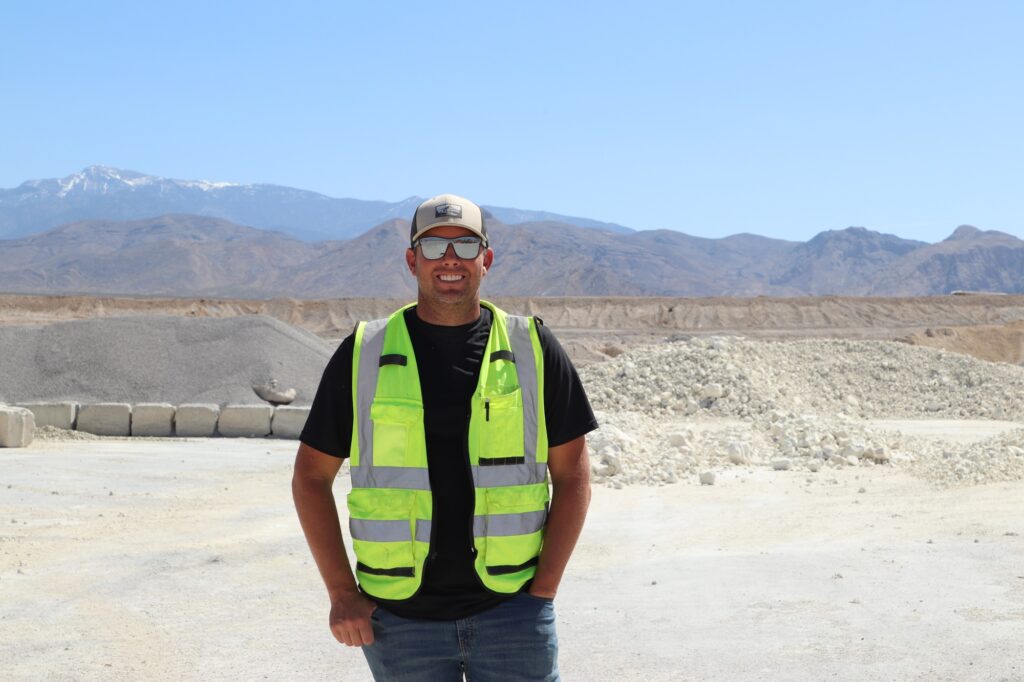
At first glance, the site might look like a sprawling mix of conveyor belts, equipment, and mounds of earth-toned material. But as Bryan walks the property, it’s clear every inch of it has a purpose. “We’re a mine site,” he explained. “We specialize in rock and sand. We crush and wash it. Most of what we produce is used for concrete.”
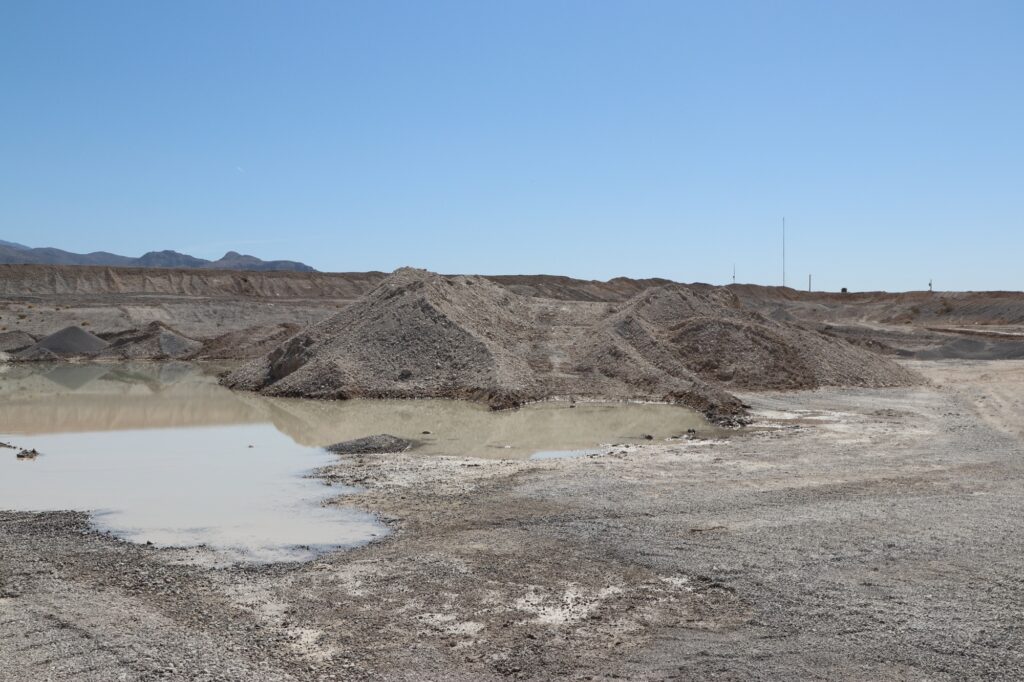
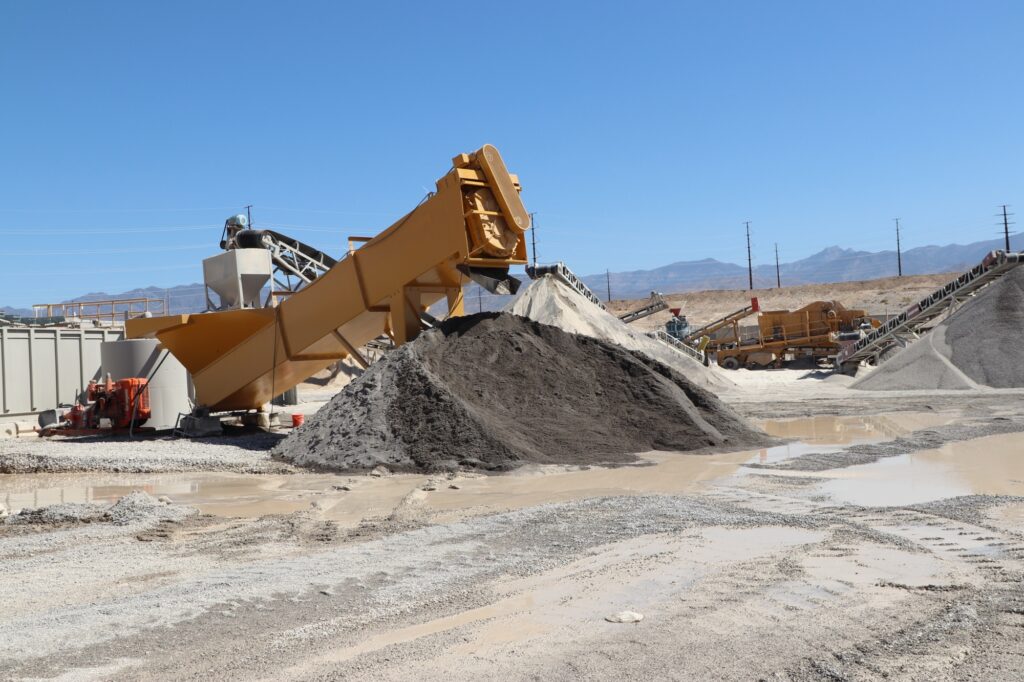
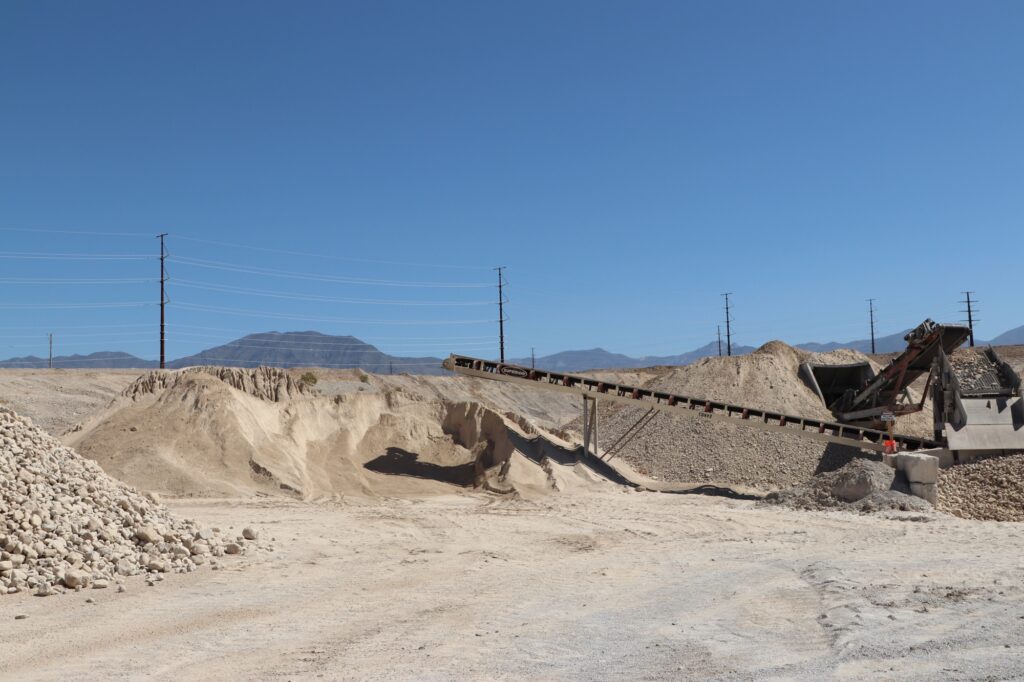
What they’re pulling from the earth here is vital to construction—especially ready-mix concrete, which relies on precisely measured blends of rock and sand. But Wulfenstein Aggregates goes beyond the basics. The rock pulled from this pit ends up in utility trenches for water and sewer lines, in backfill for house pads, in decorative landscaping, and soon, in specialized applications like water filtration and even kitty litter.
While Bryan doesn’t run trucks himself, customers can still get his material delivered. “We sell to Star Nursery, and they’ll start hauling out of here next week,” he said. For those wanting a more direct line, he often calls on Rafael with K&R Grading and Surfacing to handle deliveries. “He’s got trucks and does a good job getting material to customers.”
The partnership model extends even further. Road projects, such as the anticipated roundabouts on Highway 160, will be constructed by Double M LLC, operated by Russ Meads. Bryan and Russ collaborate closely. “We’ll be constructing those,” he confirmed. “And then all the site work—utilities, landscaping—at the Silverton Casino project across from the racetrack, that’s us too.” The project, located on the east side of the highway near the lake and existing RV park, is one of the most significant undertakings in the area right now.
Although the business has a forward momentum, it’s rooted in deep family tradition. Bryan grew up surrounded by rock and heavy machinery. The land his current operation sits on has been in the family for decades, once used for projects like the expansion of Highway 372. “Las Vegas Paving rented this pit back then,” he explained. “All the material came out of here.” Even Manse Elementary School sits on fill pulled from this ground.
Still, this venture is distinct. “It’s more independent,” Bryan noted. “I worked for my dad and grandpa before, but this time I have full control—and full responsibility. That’s different.” He describes the experience as both challenging and rewarding, and it’s clear he’s driven by more than profit. “I enjoy the challenge,” he said with a smile. “We’re just getting started, but we’ve done quite a bit already.”
Walking the grounds, Bryan pointed out towering piles of material, each with a distinct purpose. There’s pit run—rock pushed down from the hillsides—that can be used for structural backfill or screened and crushed into smaller, more refined products. “We’re stripping down from the bank,” Bryan explained. “That rock gets screened, crushed, and separated into products like 3/4 inch, 3/8 inch, and crushed sand.” Everything runs through an intricate setup of feeders, screen decks, and crushers. The process is precise and highly automated, though it still takes constant attention and expertise to operate.
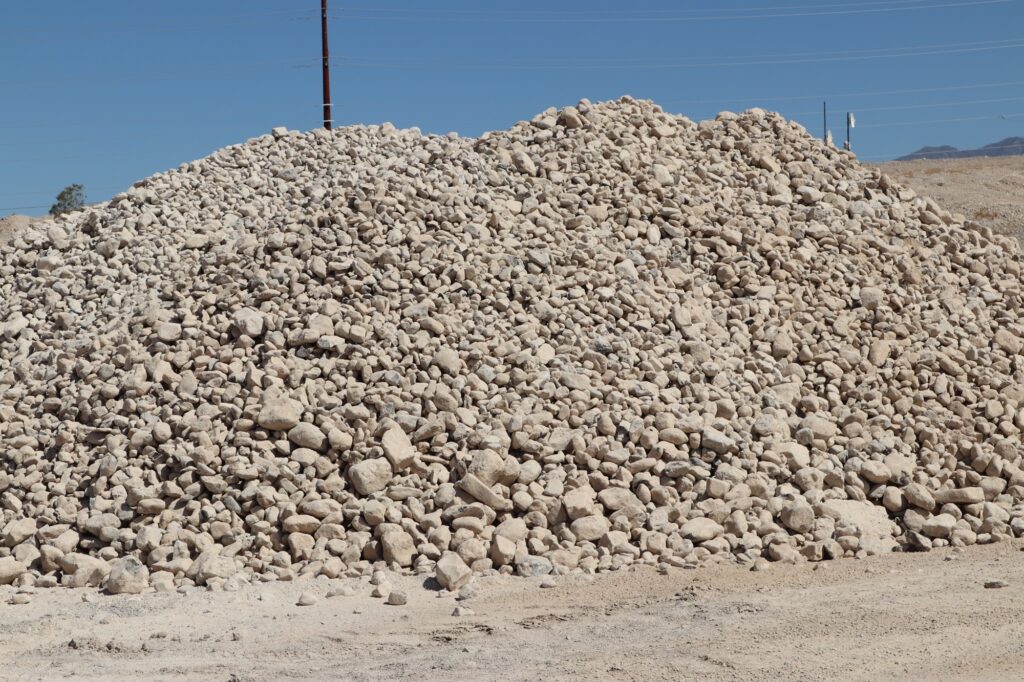
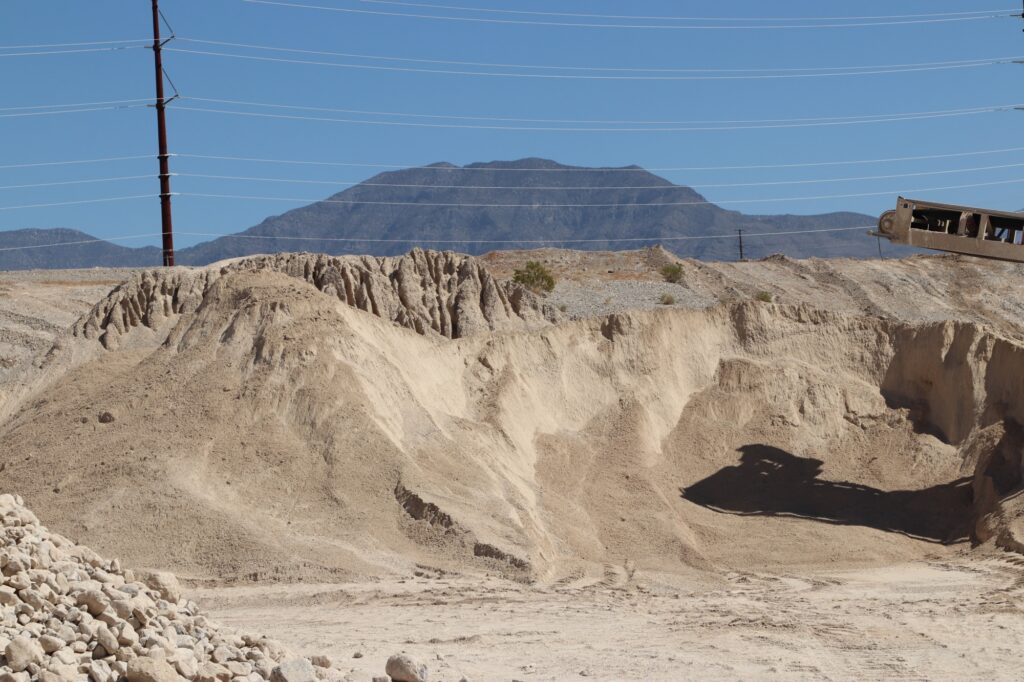
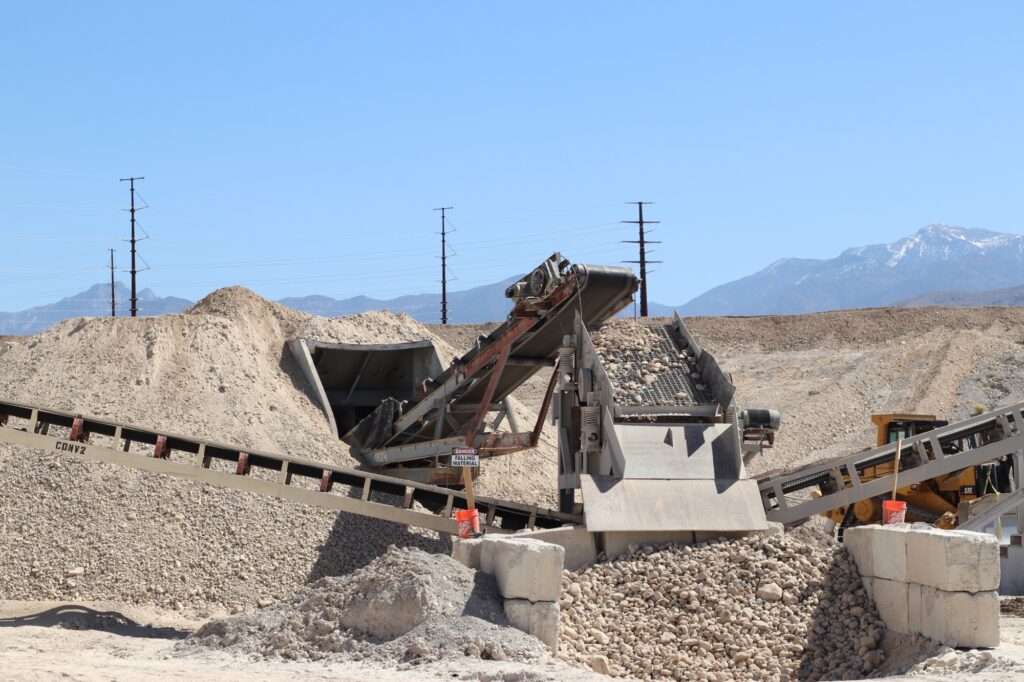
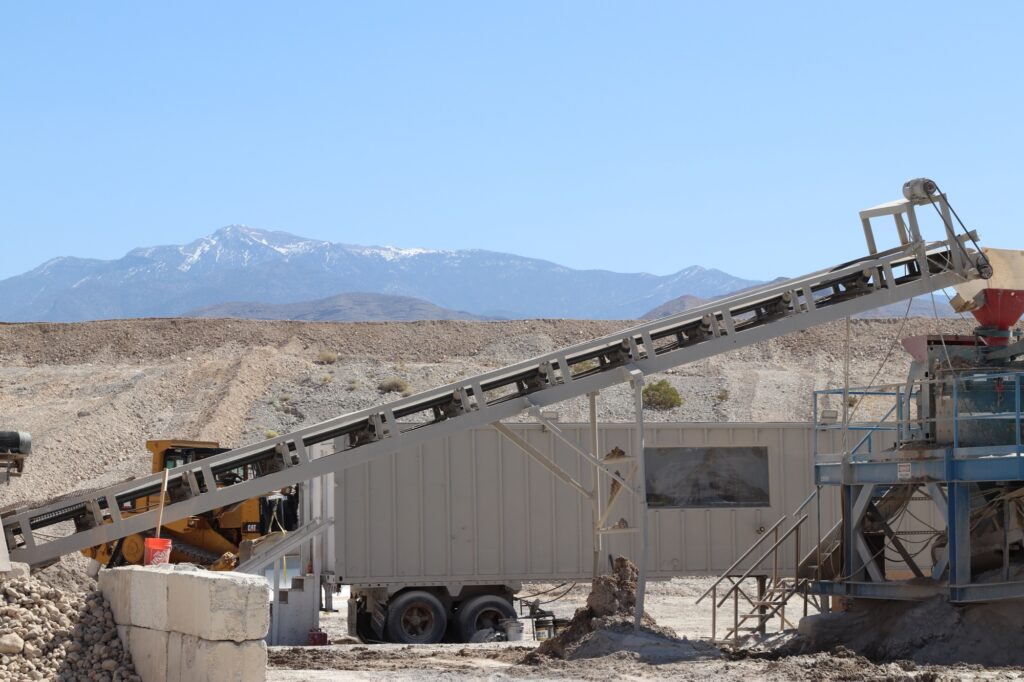
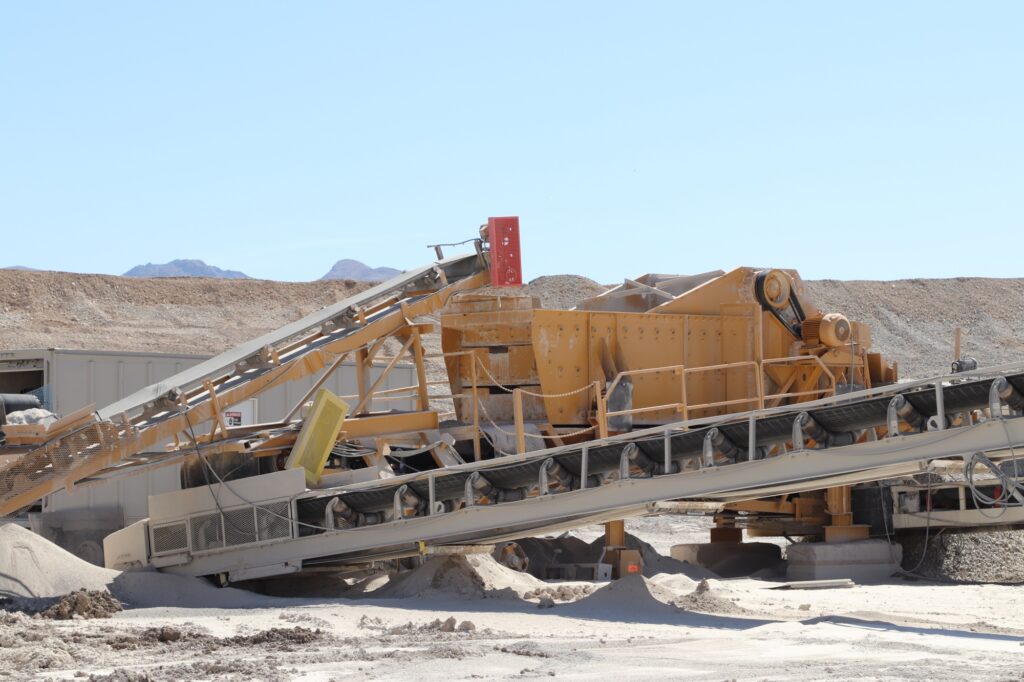
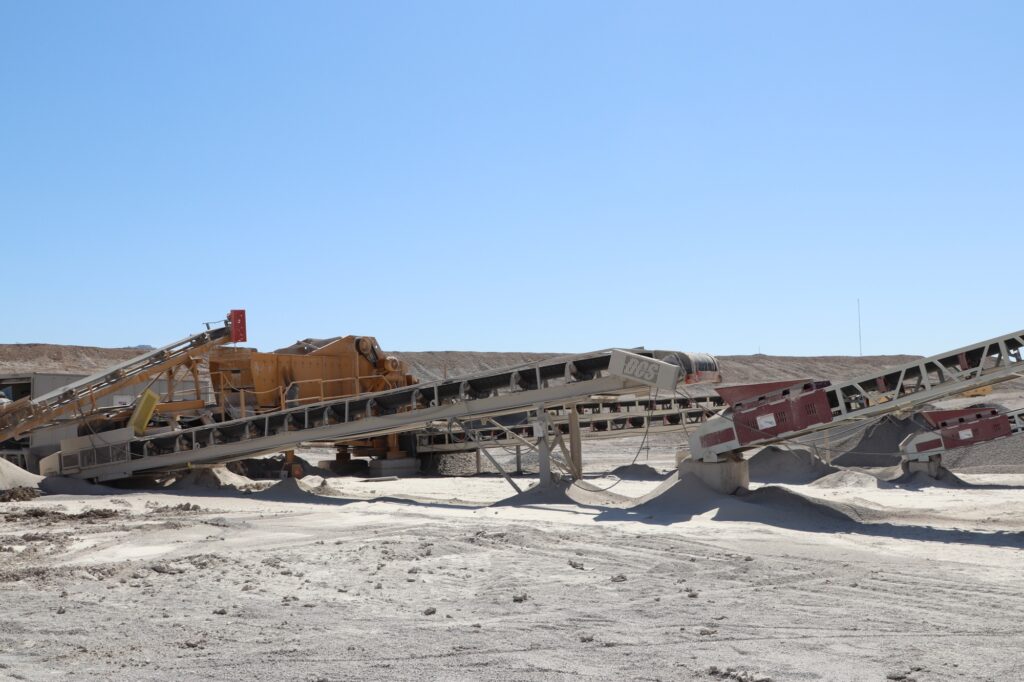
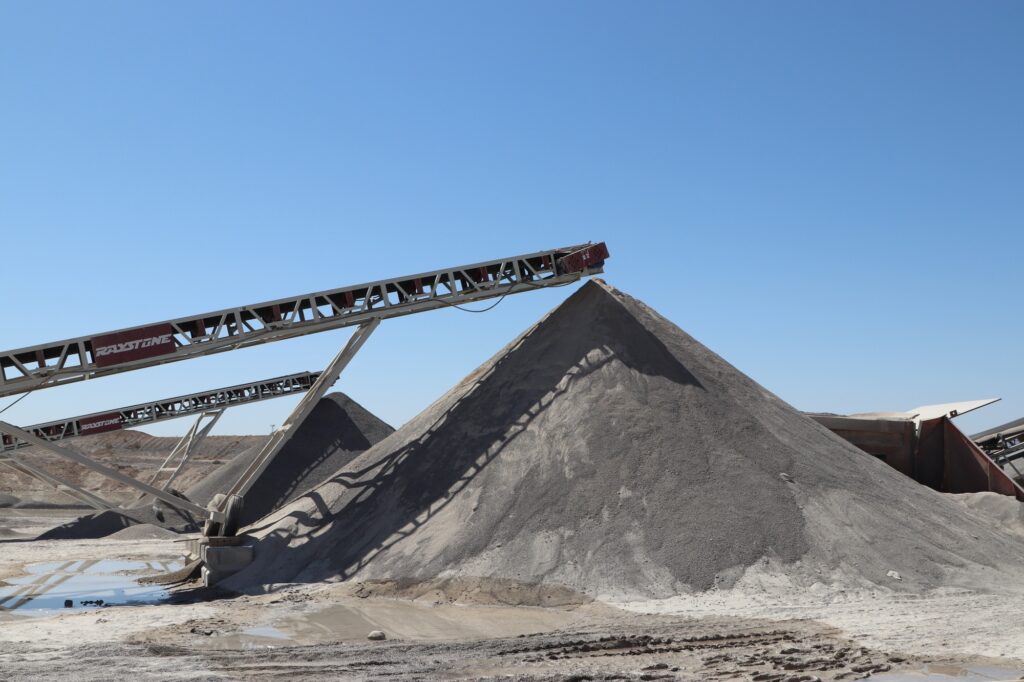
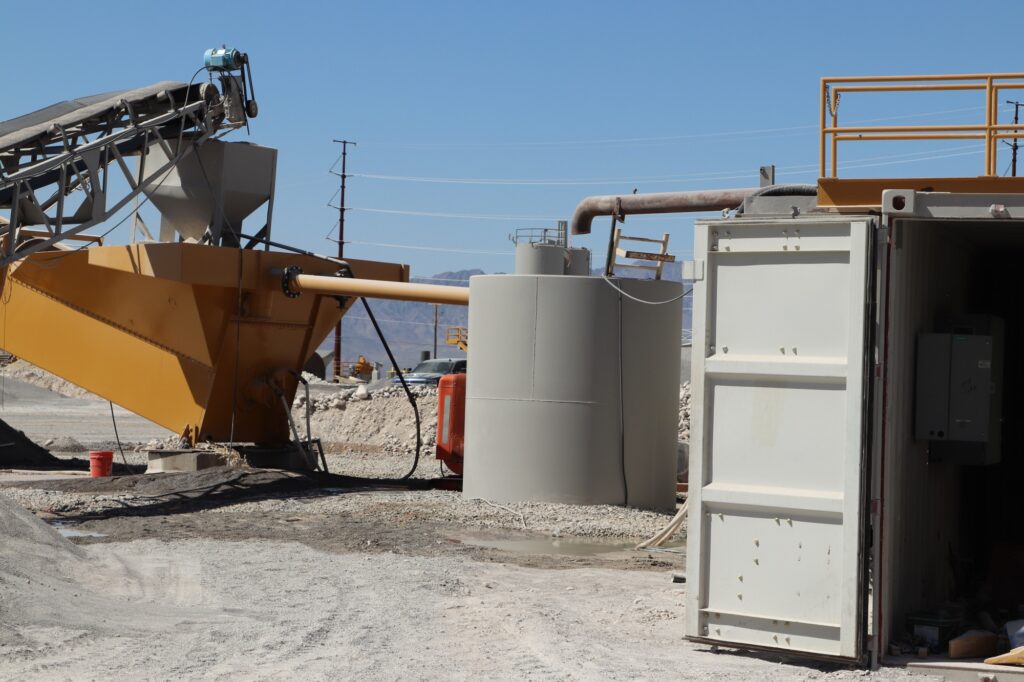
“This is our wash plant,” Bryan said, gesturing to a complex system of tanks and conveyors. “That’s where the crushed sand gets cleaned. The fine material is washed out, and what comes out is concrete sand.” Even the water used to wash the sand is recycled through a filtering system involving sumps, settling tanks, and rakes that capture fine silt. “We try to recover as much water as we can,” he said, acknowledging the challenges of dust, equipment wear, and the sheer scale of managing such an operation.
And then there’s zeolite—a lesser-known but extremely versatile mineral that will soon be a major part of Wulfenstein Aggregates’ offerings. Bryan is developing a new processing facility on-site to crush and prepare zeolite, in partnership with KMI, a Canadian company. “They’re shutting down their plant over in Ash Meadows and we’ll be taking over their processing,” Bryan explained. The raw zeolite ore will be hauled in from a mine near Death Valley and processed into various grades right on site.
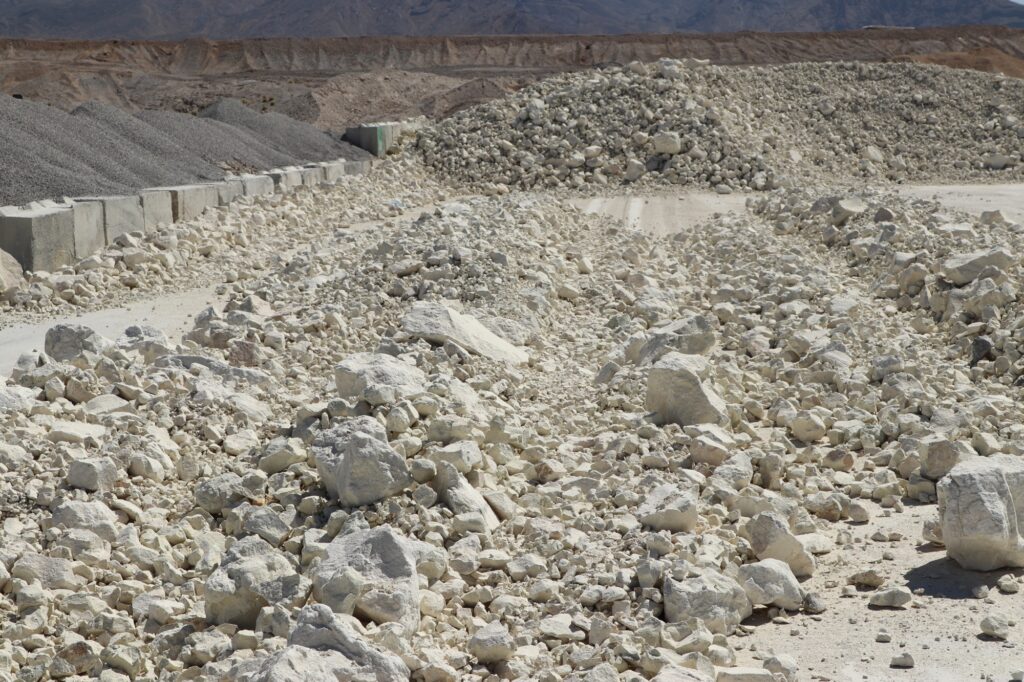
Zeolite’s uses are fascinating: it’s found in cat litter, water filtration systems, animal feed, turf infill, and even used in environmental clean-up operations like Fukushima. “It absorbs heavy metals, it’s antimicrobial, and it’s super lightweight and porous,” Bryan said, handing over a chunk of the dull gray mineral. “It’s safe and inert—it actually helps keep contaminants out of your system.”
The new zeolite plant, though still under construction, is a major expansion. Piles of equipment and framework hint at what’s to come: large silos, specialized crushing systems, and an emerging hub for mineral processing in the valley. “Hopefully, it all happens the way we envision it. It’s going to be something really cool,” Bryan said.
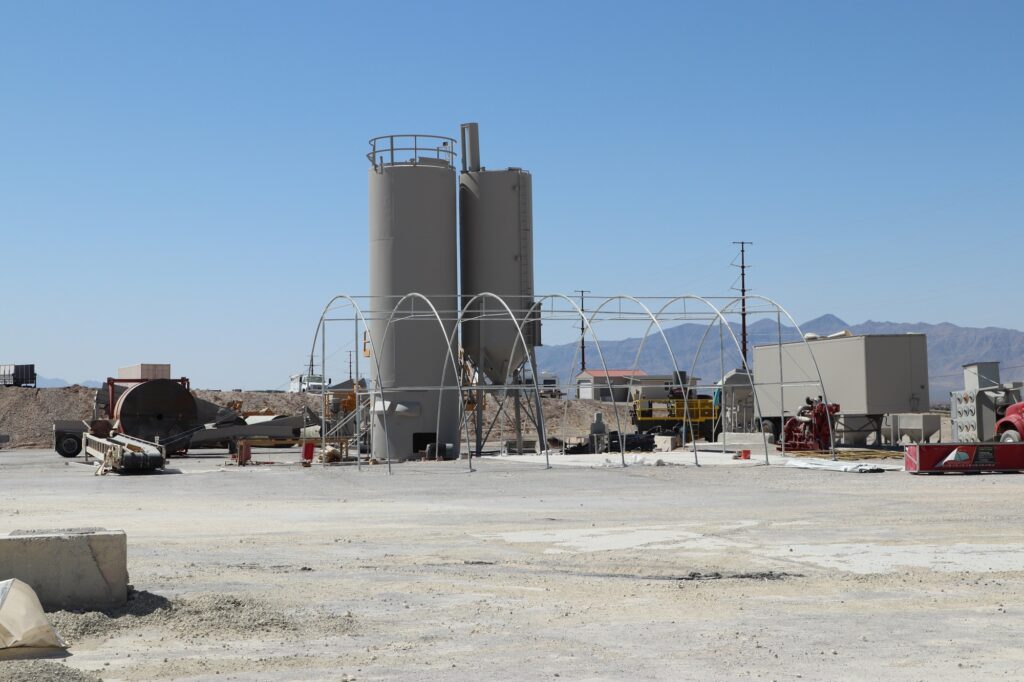
While the land is still owned by his father, the business side is all Bryan—and the future of Wulfenstein Aggregates is being charted with both vision and determination. His commitment to environmental responsibility, strategic partnerships, and high-quality materials reflect the same values that built Pahrump’s infrastructure decades ago. But this isn’t just a continuation of the past—it’s a bold new chapter, one rock at a time.



